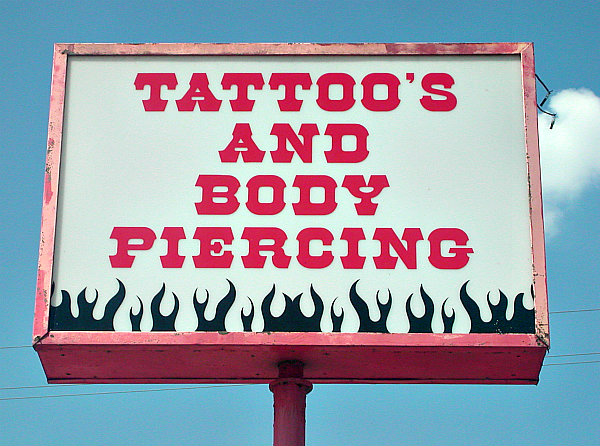
Do you know when to use I or me in a sentence?
Better yet, do you think it even matters? iFixit CEO Kyle Wiens ignited a firestorm of debate when he wrote in a blog post for the Harvard Business Review that he won't hire people who use poor grammar.
No ifs, ands or buts about it.
"Everyone who applies for a position at either of my companies, iFixit or Dozuki, takes a mandatory grammar test," he wrote.
"Extenuating circumstances aside (dyslexia, English language learners, etc.), if job hopefuls can't distinguish between 'to' and 'too,' their applications go into the bin."
Sound extreme?
It shouldn't. Good grammar is the foundation for clear, concise and professional communications. And, most grammarians agree, grammar skills say a lot about a person's intelligence, thoughtfulness and attention to detail.
Sure, if you're a student in an online degree program, you wouldn't turn in a paper without proofing it first. But do you really need to be concerned about when to say "who" and when to say "whom" in the business world?
Brad Hoover, CEO of Web-based Grammarly, thinks you do.
His company's review of 100 LinkedIn profiles belonging to native English-speakers in the consumer packaged goods industry showed a distinct correlation between good grammar and professional success. Specifically:
- Professionals with fewer grammar errors in their profiles achieved higher positions.
- Fewer grammar errors correlate with more promotions.
- Fewer grammar errors associate with frequent job changes.
The facts speak for themselves.

Celebrate National Grammar Day
In honor of National Grammar Day, we're listing some of the common grammar faux pas that have dogged writers for decades. Here are 30 of our favorites:
- Affect/Effect: Generally, use affect as a verb and effect as a noun. Affect means to influence something. (The rain affected my hair.) Effect refers to a result. (The rain had no effect on my hair.)
- Allude/Elude/Refer: Allude is to make an indirect reference to something. Elude means to avoid, evade or escape. Refer means to speak of directly.
- A lot: Two words, not one, as in alot.
- All right: Not alright. (His essay was just all right.) Hyphenate only as an adjective. (I am an excellent baker but an all-right cook.)
- Altogether/All together: Altogether means wholly, completely, in all, everything being considered. All together means in a group.
- Altar/Alter: An altar is a table-like platform for religious ceremonies. To alter means to change.
- Another: Another is not a synonym for additional. Another refers to an element that somehow duplicates a previously mentioned amount. (Twenty people left the room; another 20 stayed.)
- Assure/Ensure/Insure: Assure means to guarantee or convince. Ensure means to make certain. Insure refers to a policy. (I assure you: it will not rain today. She brought a jacket to ensure she would not be cold. He was such a great pitcher, the team insured his arm.)
- Between/Among: Between is used with groups of two; among is used with groups of three or more. (Between you and me, he was the smartest among the students.)
- Bimonthly/Semimonthly: Bimonthly means every other month; semimonthly means twice a month. The same is true for biweekly, biannual (every other week/year) and semiweekly, semiannual (twice per week/year).
- Continual/Continuous: Continual refers to things that are repeated but come with breaks in between (such as disagreements, car trouble and sunshine); continuous refers to something that never stops (such as a leaky faucet, a circle or healthy human heartbeat).
- Data: Data is a plural noun and generally takes plural verbs and pronouns (the data show, the data consist of). In limited instances, however, when data is used as a collective noun (data processing, data center) it takes a singular verb or pronoun.
- Different than/Different from: Bottom line, different than is incorrect. Always use different from. (She is different from me in several ways, but like me in more ways than you would imagine.)
- Entitled/Titled: Entitled means having the right to do something. Titled is the word to use if you're introducing the name of a publication, speech, book, etc. (Membership entitles you to a free magazine subscription. The book is titled "Moby Dick".)
- Good/Well: Good is an adjective that means something is as it should be or is better than average. (She still looks good after all these years.) Do not use good as an adverb. Well is an adverb used to describe an activity. It means in a satisfactory manner. (She dances well.)
Well can also be used as an adjective to mean healthy, suitable or proper (Sue looks well even though she has been ill. I am well, thank you.)
- I/Me: I is a subject pronoun (such as he, she, they) and is used for the subject of a sentence. Me is an object pronoun (such as him, her, them) and is used for the object of a sentence.
The problem seems to arise when the sentence involves more than one person. Here's a simple rule. Take the other person(s) out of the sentence and choose the one that sounds right. For example, you wouldn't say "Mary and me went to dinner" because you wouldn't say "me went to dinner."
- i.e./e.g.: Use i.e. when you want to say that is (My cousins are young, i.e., Paige, Sean and Mason.) and e.g. when you want to say for example (I love leafy vegetables, e.g., kale, spinach and chard.)
- Irregardless: There is no such word. Use regardless.
- Its/It's: Its refers to ownership. (The dog buried its bone.) It's is the contraction for it is. (It's raining.) Unless you are trying to say it is, do not use an apostrophe.
- Lay/Lie: Lie always refers to an untruth. The more important distinction, however, is that lay requires a direct object. (You lay the blanket down on the bed.) Lie does not require an object. (You lie down on the bed.)
- Less/Fewer: Less is for things you don't count (such as milk, candy and heartache). Fewer is for things you count (such as children, M&Ms and marbles).
- Like: Use such as instead of like to cite examples.( I like all large dog breeds, such as Labradors, German Shepherds and Golden Retrievers.)
- Like/As: Use like as a preposition to compare nouns and pronouns. It requires an object. (Greg plays football like a pro.) As is a conjunction that introduces clauses and phrases. (The water was icy as I thought it would be.)
- Lose/Loose: Lose is a verb that refers to suffering a loss or misplacing something. (I lose my keys once a week.) Loose is primarily an adjective referring to things that are not tied down or secure. (The knot is loose.)
- Nor/Or: Generally speaking, neither pairs up with nor, while either pairs up with or. (Neither Pat nor I enjoyed the meal. Either you're in or you're out.)
- Principal/principle: Principal is a noun and an adjective meaning someone or something first in rank, authority, importance or degree. Principle is a noun meaning a fundamental truth, law, doctrine or motivating force.
- Singular and Plural Possessives: To make a singular noun possessive, add an apostrophe plus an s (school's, wife's, Mrs. Smith's). To make a plural noun possessive, add an apostrophe to the word (girls', teachers', dogs').
If the noun is plural but does not end in an s, then add an apostrophe plus s (men's, cat's, house's).
For nouns ending in an s, add an apostrophe plus an s if the noun is a common noun (boss's, class's, canvas's); add only an apostrophe if the noun is a proper noun (Mr. Jones', Christmas', Arkansas').
- That/Which: Use that before a restrictive clause (part of a sentence that you can't get rid of without changing the meaning) and which before a nonrestrictive clause (can be left off without changing the meaning of the sentence).
For example: Candy that is both sweet and sour is perfect for indecisive people. (The words "that is both sweet and sour" restrict the kind of candy you are talking about; without them, you'd be saying that all candy is perfect for indecisive people.)
Conversely, eliminating the words "which just sold" from the following sentence does not change its meaning: The house, which just sold, is absolutely spectacular.
- Then/Than: Then has an element of time. (We went to the movie, then went for ice cream.) Than involves comparisons. (She is older than her sister.)
- Who/Whom: Who is a subjective pronoun (such as he, she, I), and acts as the subject of a clause. (Who ate the ice cream?) Whom is an objective pronoun (such as his, her, me) and acts as the object of a clause. (For whom did you buy the ice cream?)

A few general reminders
Of course, when it comes to grammar – and writing well in particular – you can never get too much advice. So along with the rules above, hang on to these simple tips for clear, concise and professional communications.
- Always proof your work; spelling errors are unacceptable.
- Avoid jargon; use everyday words.
- Where possible, use the active voice.
- If you can cut a word out, cut it out.
- Use a shorter word rather than a longer one.
- Check your tone.
- Organize your thoughts before you start writing.
- Know the mistakes you make often; check for them.
Grammar makes cents!
By now you've probably decided that good writing makes good sense. But what about good dollars and cents?
According to some recent Grammarly research, freelance professionals with strong writing skills perform better and get paid more. In fact, the study showed freelance manufacturing and engineering professionals with 10 or less errors per 100 word document got paid more than double per job what their colleagues with 30 or more errors were paid. Double!
Some great resources
The Internet, library and bookstores are full of valuable resources that can help make you a better writer. Here are a few of our favorites:
- Grammarly.com – An innovative website that acts as an automated proofreader and professional grammar coach, and even checks for plagiarism. Best of all, if you're a Saint Leo University online student, you're eligible for free access to the site
- GrammarGirl.com – An easy-to-use website with tips, tricks and hints for better writing.
- GrammarBook.com – An informative site, which offers free grammar rules, fun quizzes and a blog filled with tip for better writing.
- Associated Press Stylebook – Part dictionary, part encyclopedia and part textbook, the annually updated guide is the definitive resource for journalists and a must-have reference for writers, editors, students and professionals.
- Chicago Manual of Style – Published since 1906, the manual is a trusted source on style and process for writers, editors and publishers.
- "Eats, Shoots & Leaves: The Zero Tolerance Approach to Punctuation" – A #1 New York Times best seller that combines boisterous history with grammar how-to's to show the importance of punctuation.
- "297 Flabby Words and Phrases That Rob Your Writing of All Its Power" – An awesome list of words and phrases to avoid to make your writing stronger.
- "37 Commonly Misused Words That Can Make You Look Bad" – Another great list; this one is posted on the career site, The Muse.
What grammar gaffes make you cringe? Please share in the comments below!
Image Credits: studioloco on Shutterstock, Lynd & Jason, and Brad Fults on Flickr/Creative Commons




